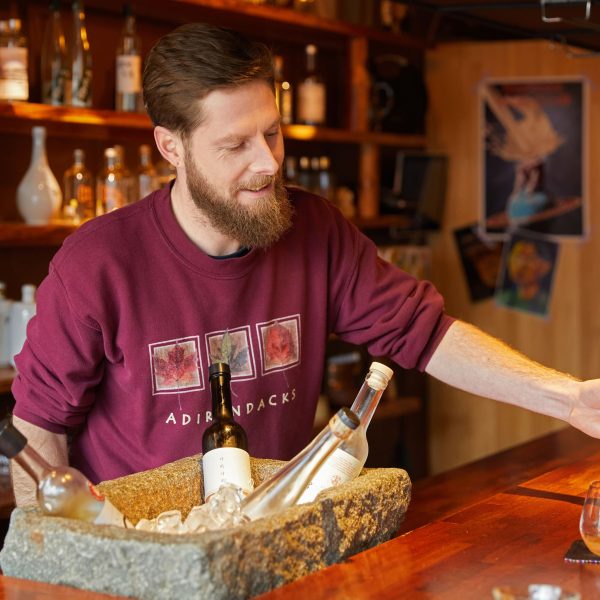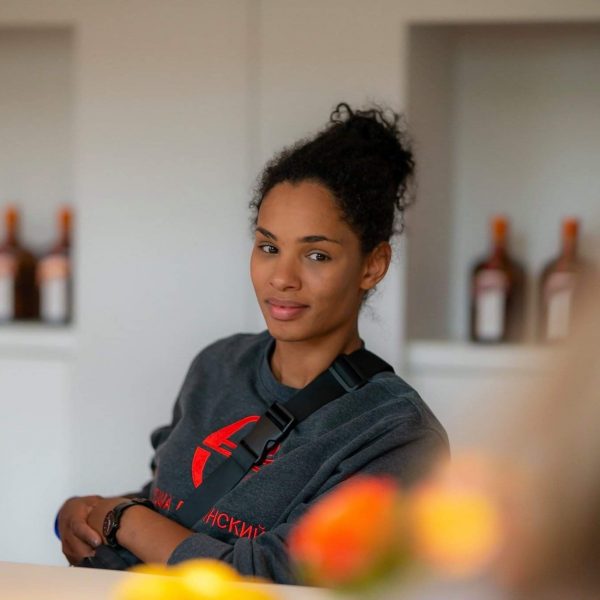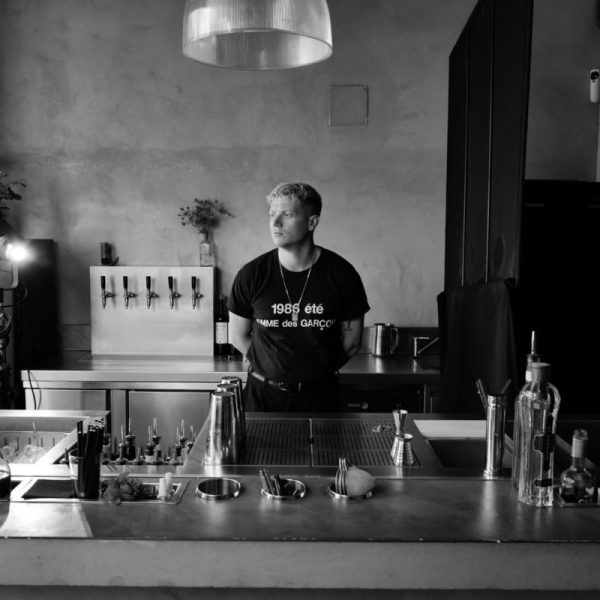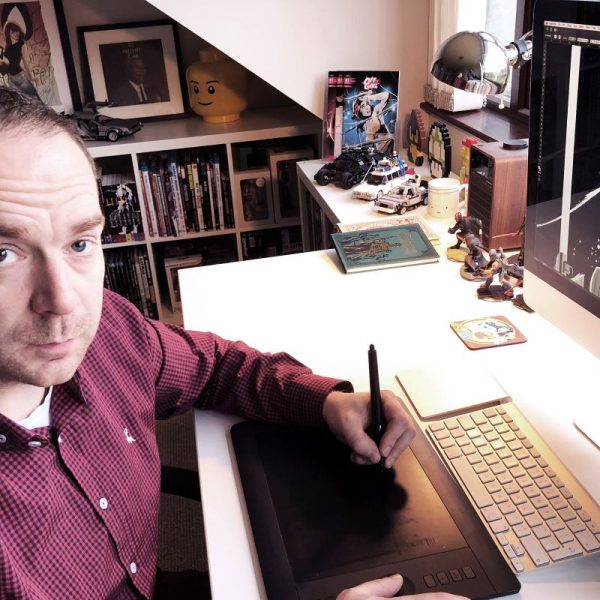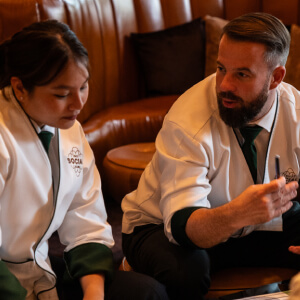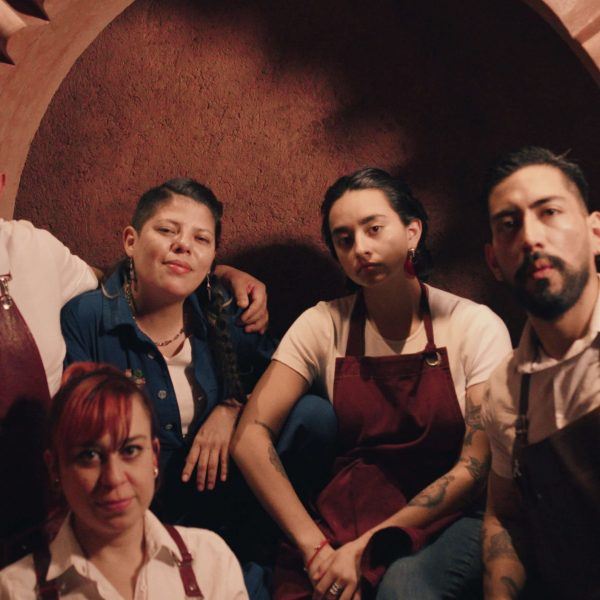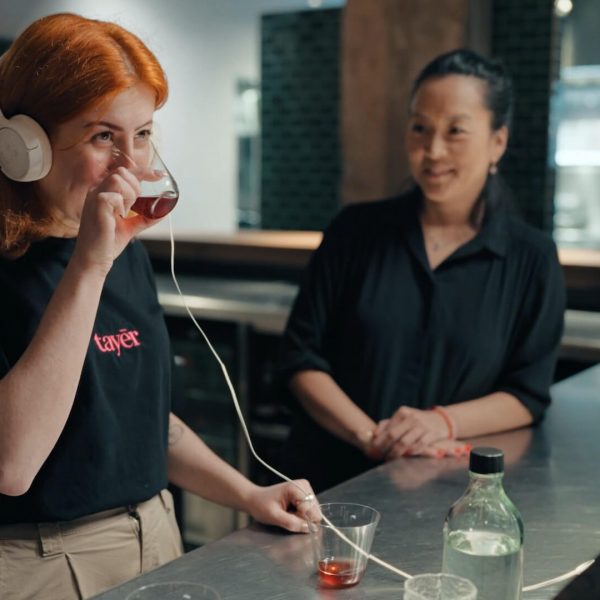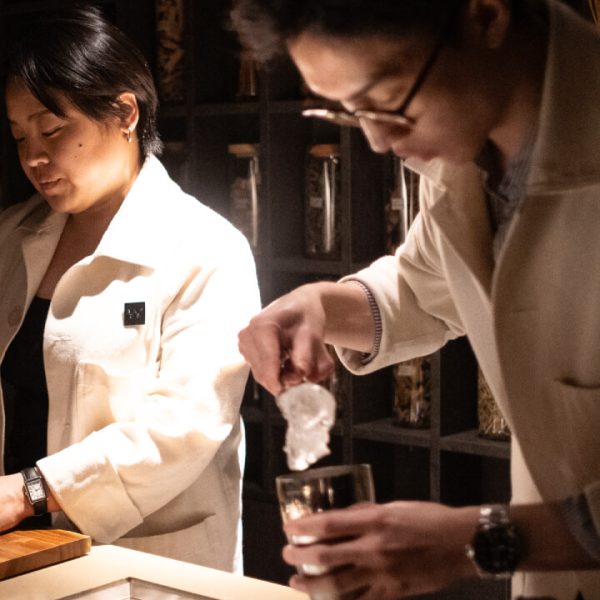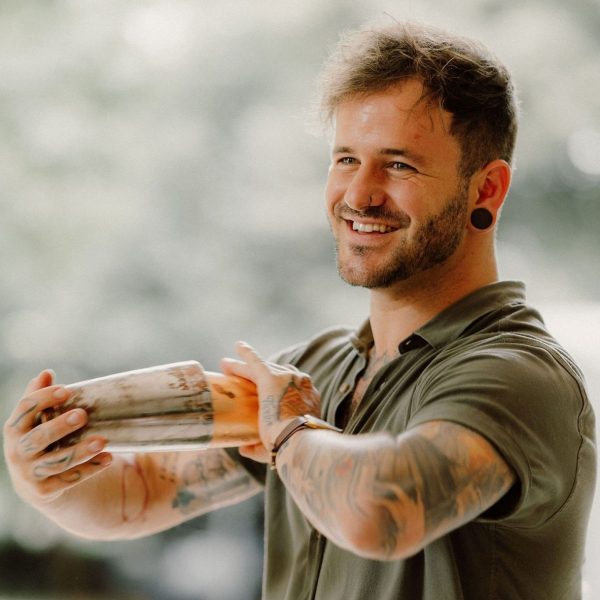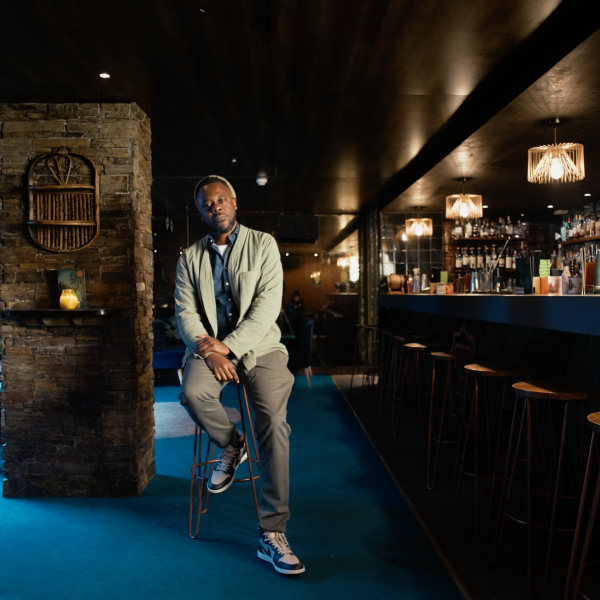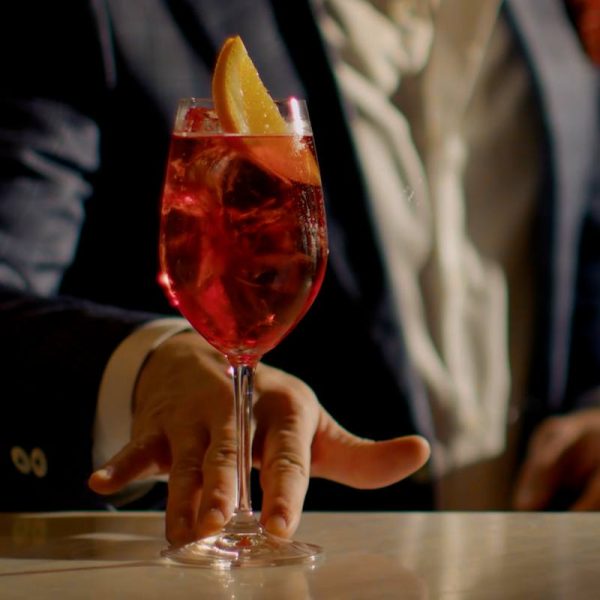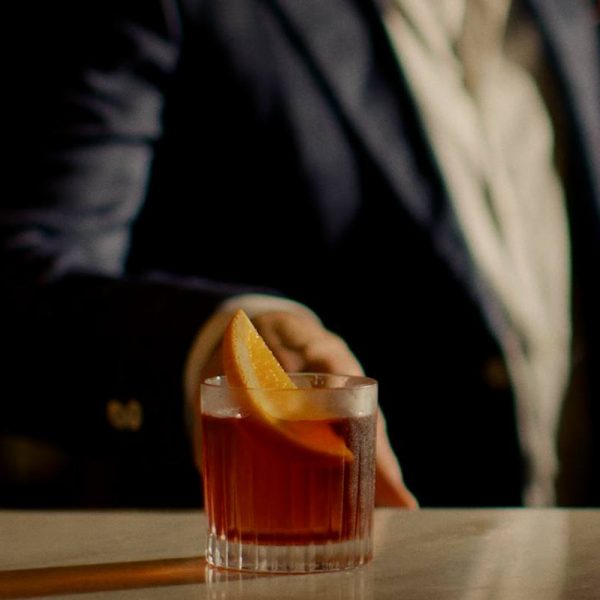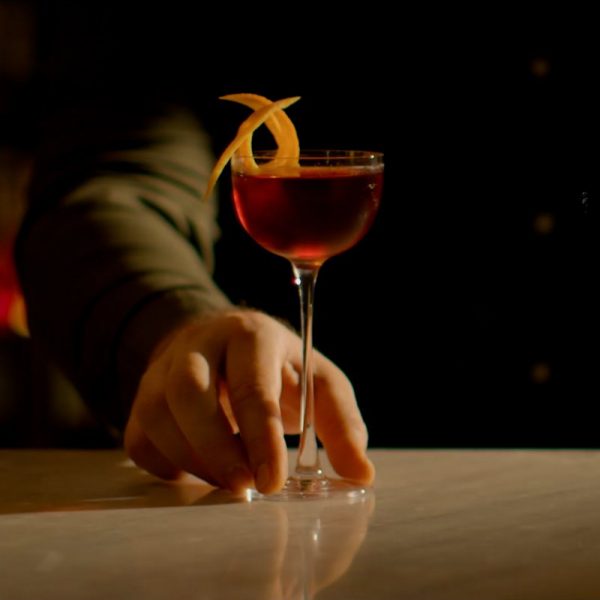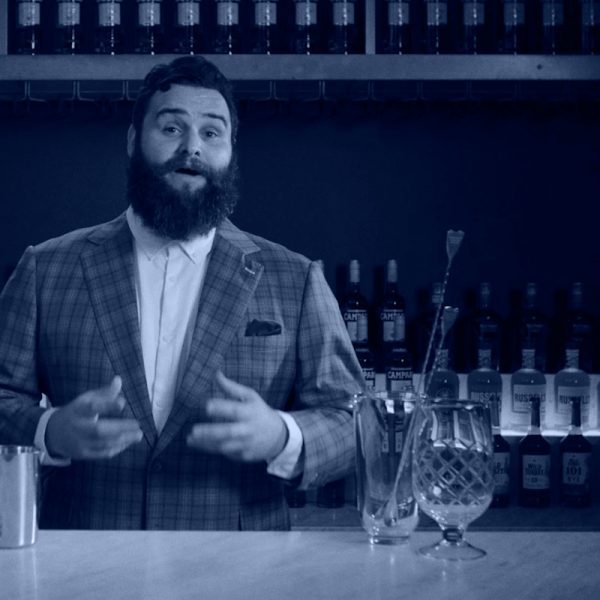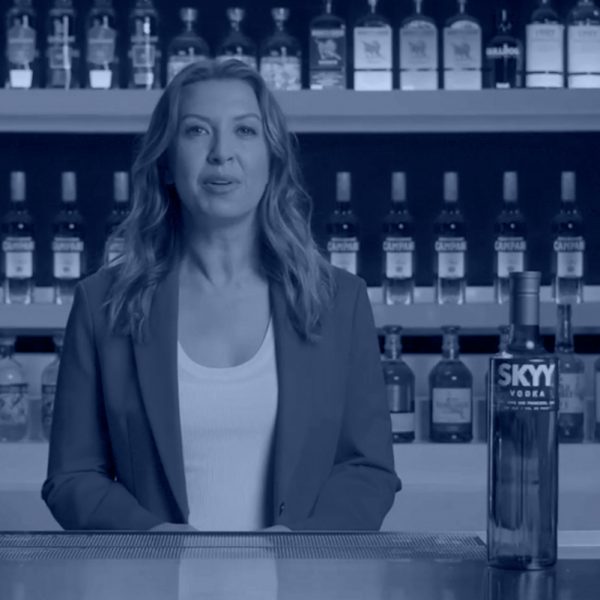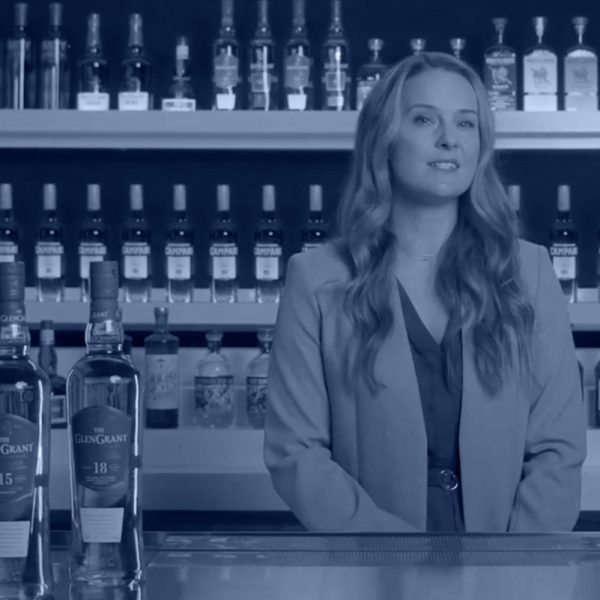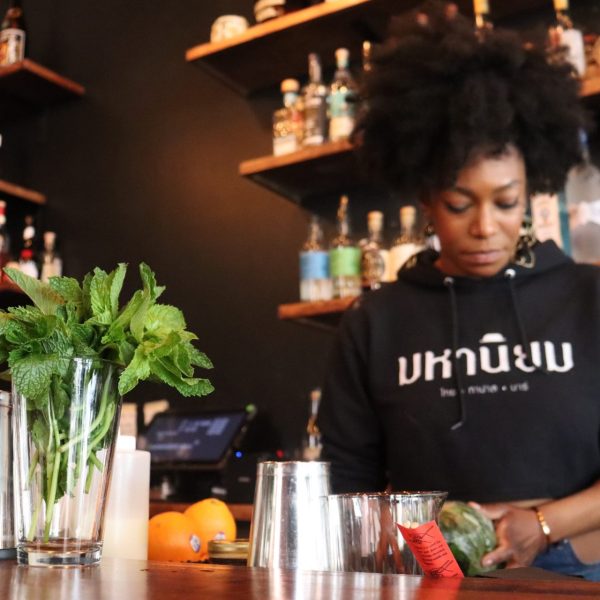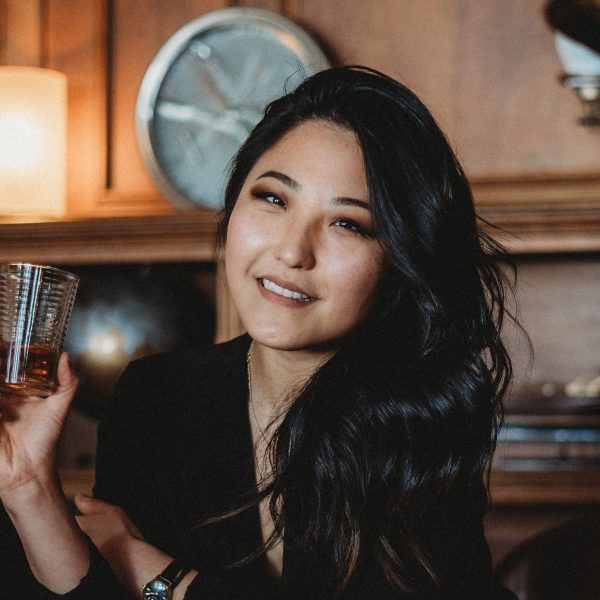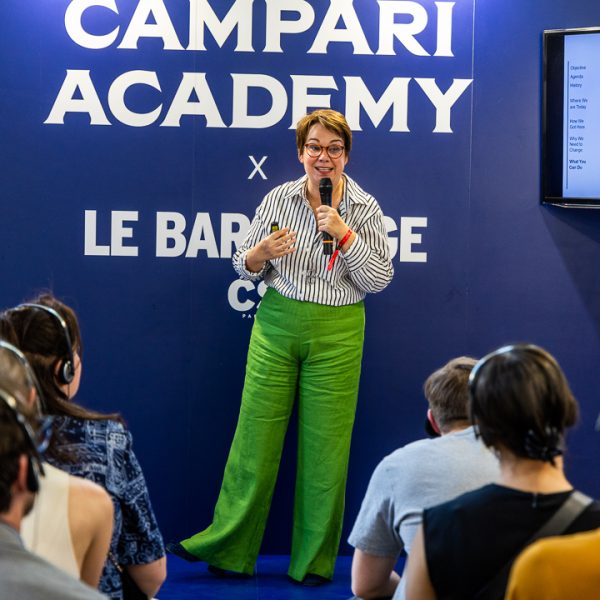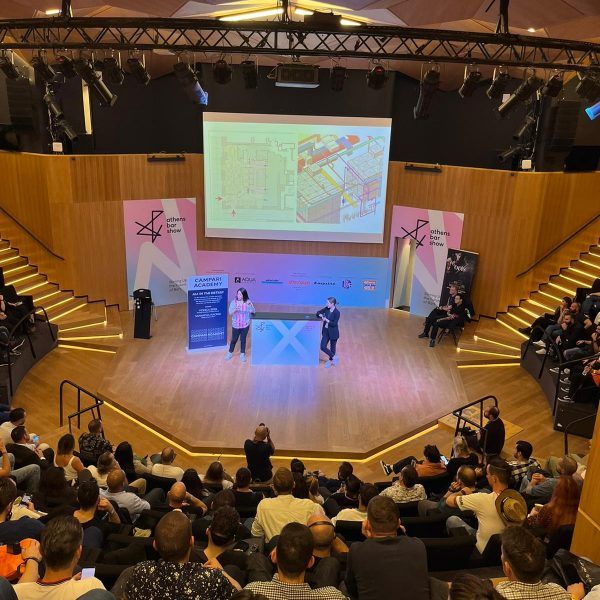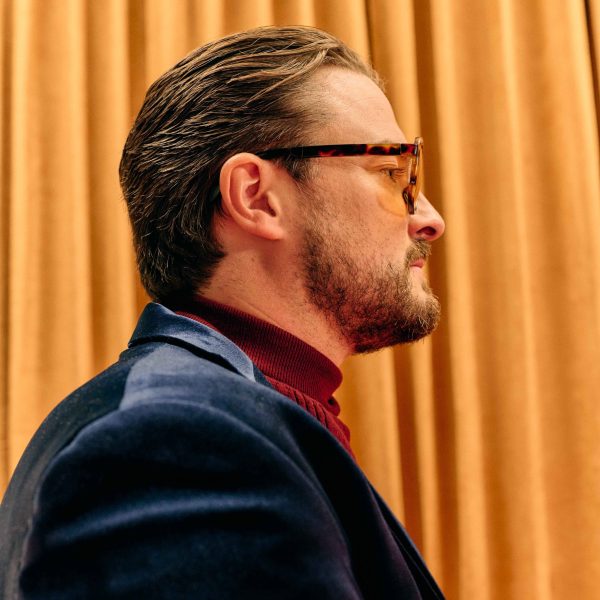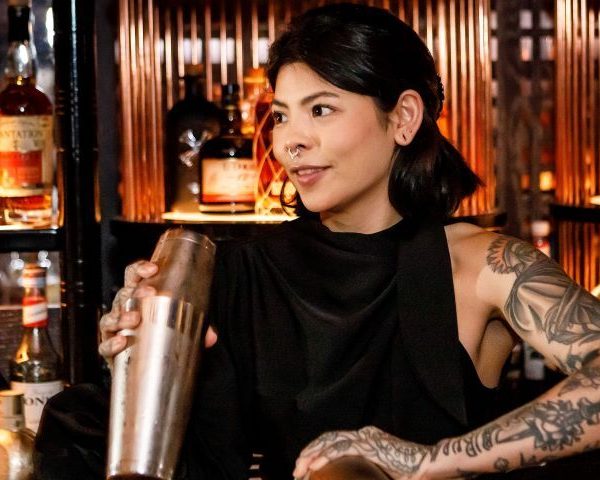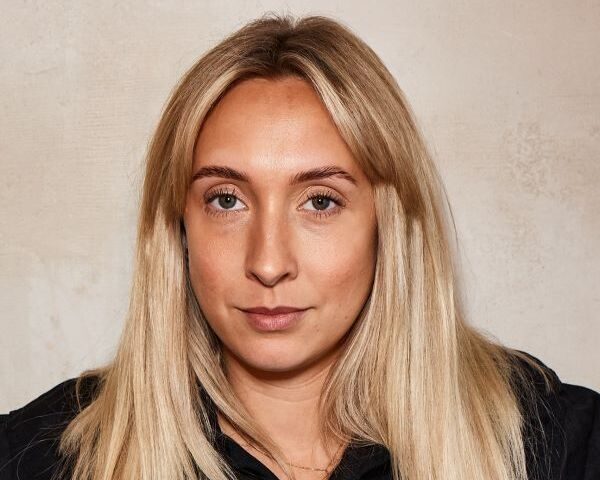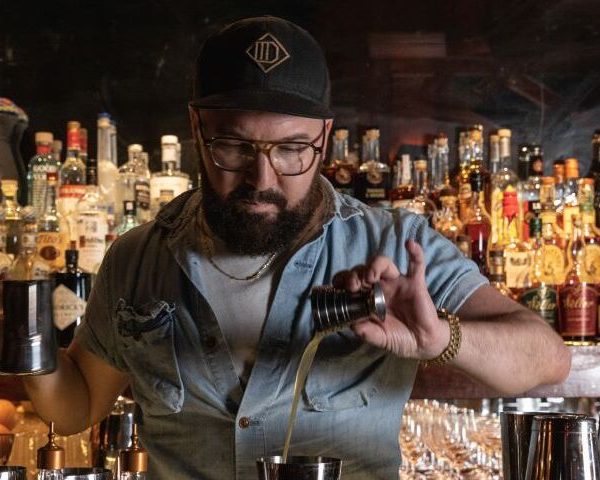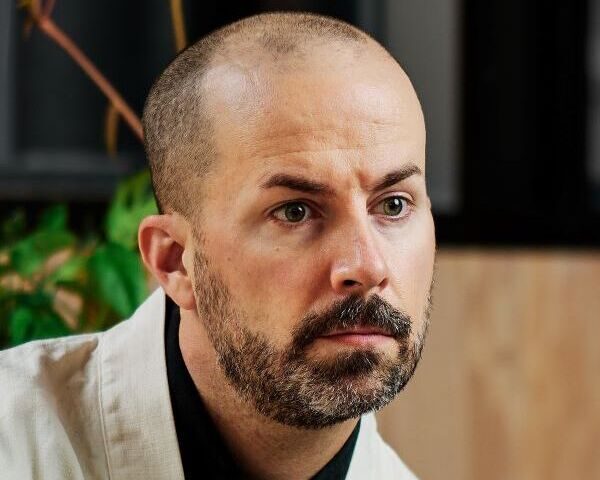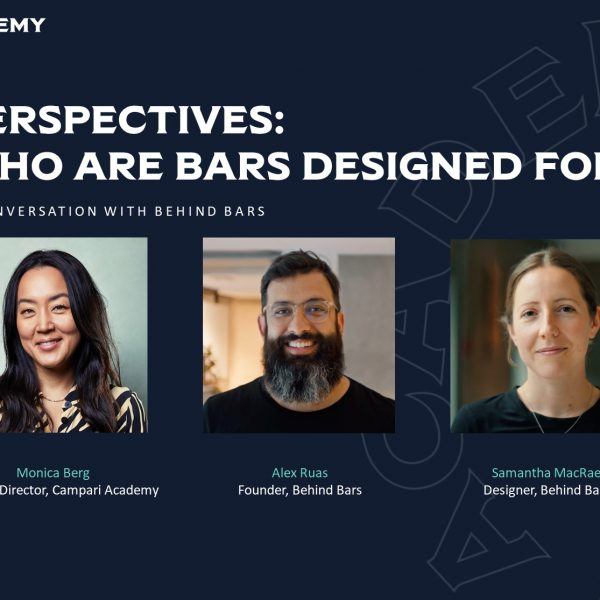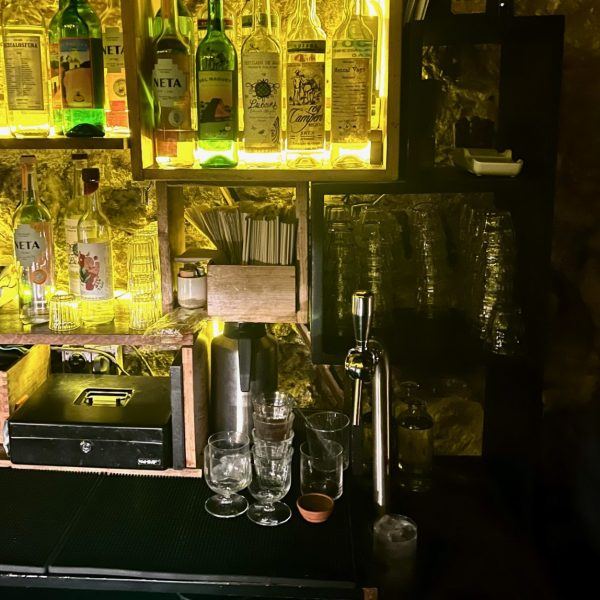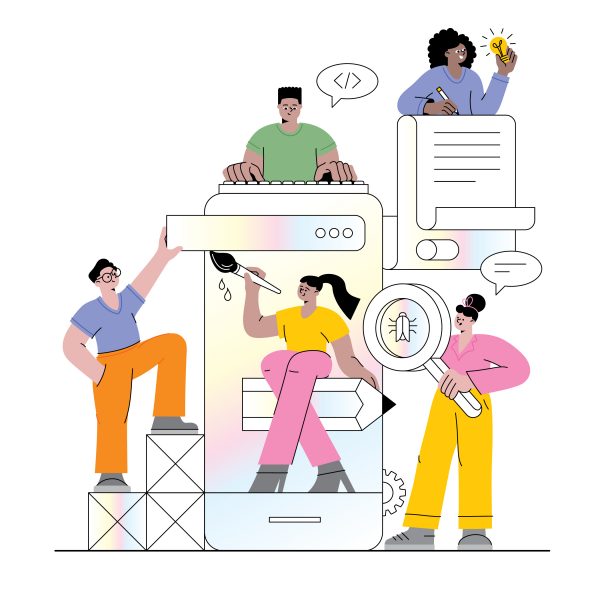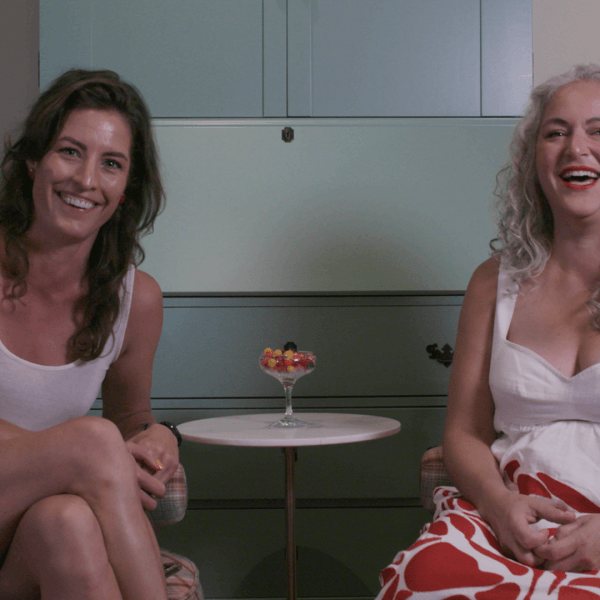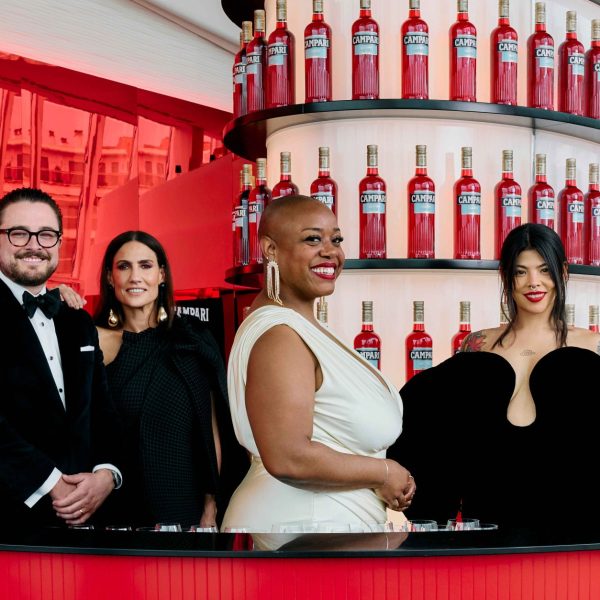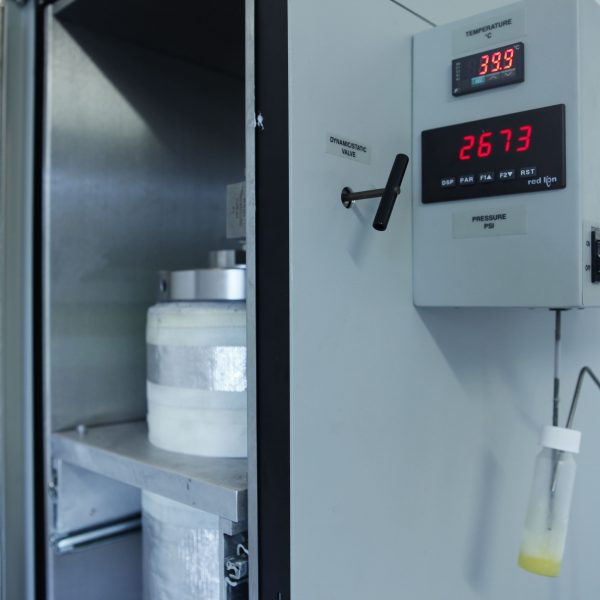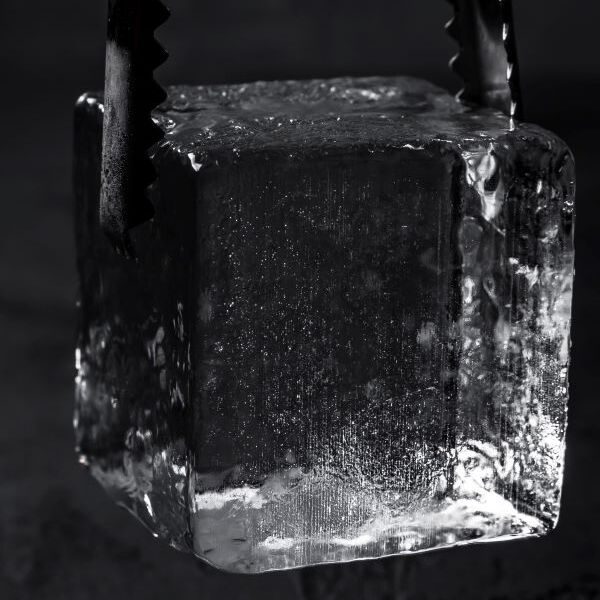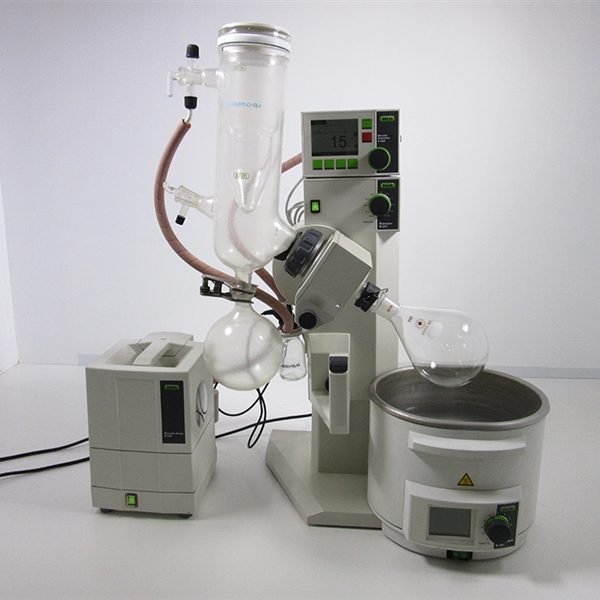Practice makes perfect: Learning your craft

It is true that theory is the foundation to start from, but nothing beats practice when it comes to learning your art, passion or profession. We spoke to three craftspeople to discover how experiences from other environments can influence a bartender’s approach to their craft
It might sound like a cliché, but rarely will you find a saying that applies so perfectly to the bartending craft: practice makes perfect.
Though tending bar is much more than just concocting delicious drinks, it is undeniable (and quite obvious) that tasty cocktails are a pivotal element for the success of a bar. And being able to consistently deliver the best drinking experience is a task that can only be accomplished by perfecting recipes, movements and ultimately service.
Some will focus on muscular memory, repeating the same pouring routine over and over to get to the perfect sequence; others will train their palate religiously. Appreciation of the work that goes into honing a craft is something that trickles out across our industry, from the bar to people who work around our industry.
We sat down with three craftspeople and asked them about their approach to their respective trade: their beginnings, the time it took them to master it and the importance of dedicating themselves to practice.
Brent Bowie, co-director, Oakwood Cooperage, Scotland
Brent Bowie has been involved in cooperage for the past 30 years, and launched Oakwood Cooperage in 2018, joining forces with director Graham Hamilton. Renowned as one of the most skilled coopers in the business, Bowie approached the role through school programmes, working one day a week while still a student, before going full time in 1995.
Growing up in Speyside (home to the most whisky distilleries in Scotland) working in whisky was almost inevitable, be it at a distillery, at a cooperage or at a service provider for the industry. “My main interest was working with wood,” he explains of where his journey began. “There were lots of broken barrels available and distilleries required them. Although barrels are needed to be the same, they are naturally all different and this allowed me to see all their nuances, so my skill set was enhanced.”
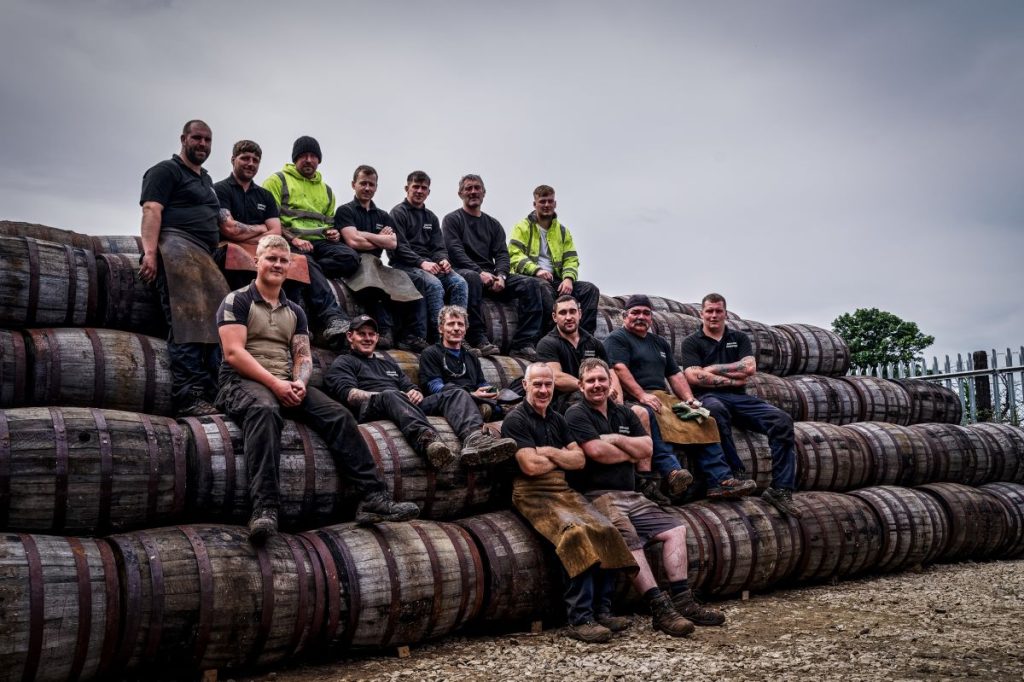
Training at Glenfiddich distillery, Joseph Brown & Sons and Dufftown, Bowie recalls how his profession evolved throughout the years: “When we started, we only used hand tools, but over the years machinery got much better: that’s why we believe that if the electricity goes off and you’re still able to work properly, you are a good cooper.”
But to become one, it takes time and practice: “It took a month of broken fingers and hand-cuts to get the coordination needed. Still today, for any trainee the first year is key: it’s when you are slow and still unaware, and as with everything, you need to walk before you run, remembering that there’s no stupid questions.” Once you get through your first year, Bowie assures, improvement is easier.
This job is not for everyone, but it grants a good lifestyle. If you put hard work in, you’ll get benefits out.
The industry has completely open doors and experience is minimal: “To become a cooper you don’t need any initial qualifications, you just have to be prepared to work hard and have common sense, since we use many sharp objects and heavy machinery.” You also get paid by the barrel, so being good with numbers is an advantage.
Newly hired workers at Oakwood Cooperage begin with a tour of the plant to witness the processes and are then employed for short periods in every department with a mentor, learning everything about the barrel and the skills to work safely. Apprenticeships last four years, but after the third year, skills and trade tests are provided by the members of the Cooper’s Federation of Great Britain.
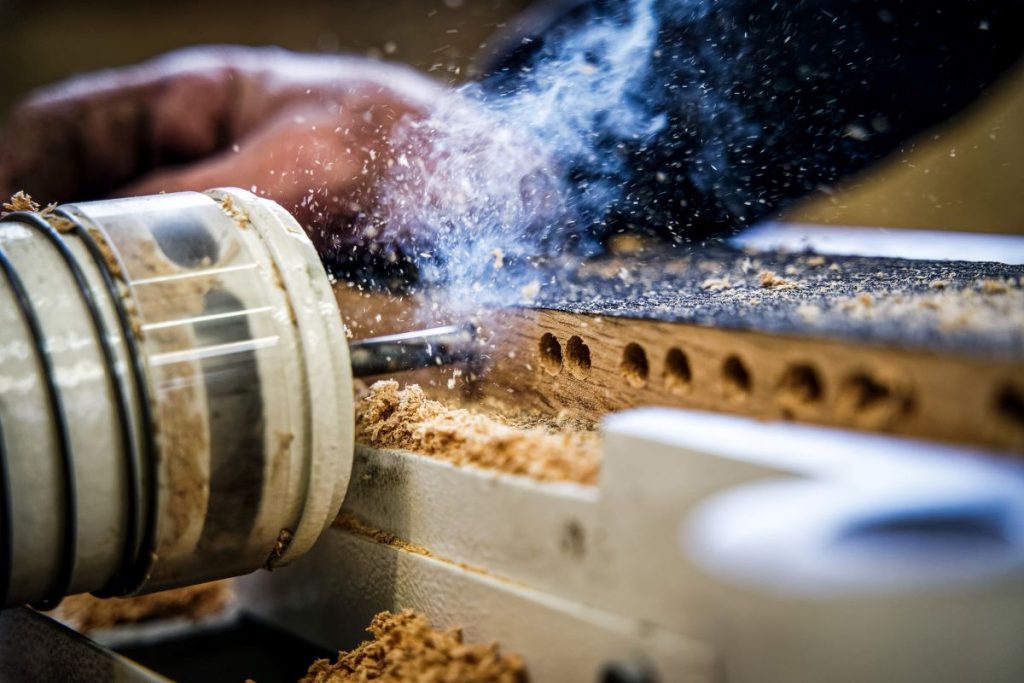
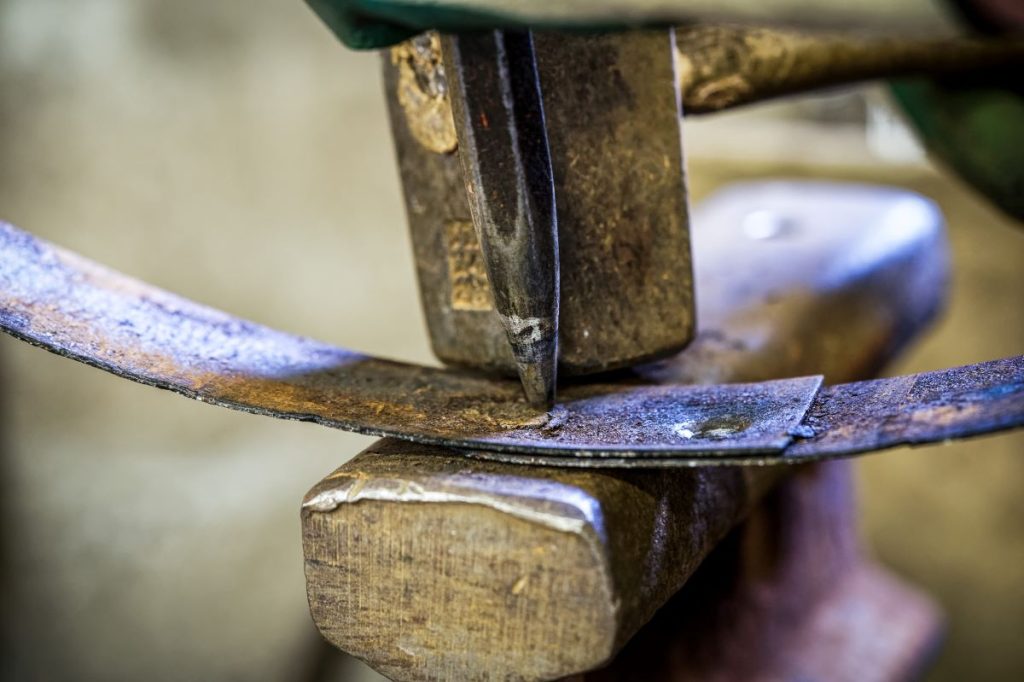
According to Bowie, new energy is coming through: “We have invested a lot in having youngsters come into the industry. We are open minded: if someone is keen and interested to learn, we will spend the time to train them. This job is not for everyone, it’s very physically demanding, but it grants very good money and a good lifestyle. If you put hard work in, you’ll get benefits out.”
Cooperage is a craft that has been practiced for centuries. Is there anything left to be learned? “You stop learning when you stop doing,” he says. “It is important to understand, though, that there is not one single way to do things properly, so not one single rule that you should learn to succeed. Certain things can’t change. I have worked in lots of cooperages, and the way we are is different from any other, not necessarily better or worse.”
Hugh Scott Moncrieff, director, Cake Architecture, London
For the past 10 years, Hugh Scott Moncrieff has been pursuing his passion for architecture and design. His Cake Architecture business features work in a variety of sectors, including cocktail bars, having designed the interiors (and not only that) for A Bar with Shapes for a Name in London.
“I have had a fascination with the design of space since I was very young,” he explains of his route into his career. “I studied architecture at The Bartlett in London and at the Cooper Union in NYC. I don’t think it is absolutely necessary to have formally studied architecture to get involved in designing space, but at certain scales it is helpful.”

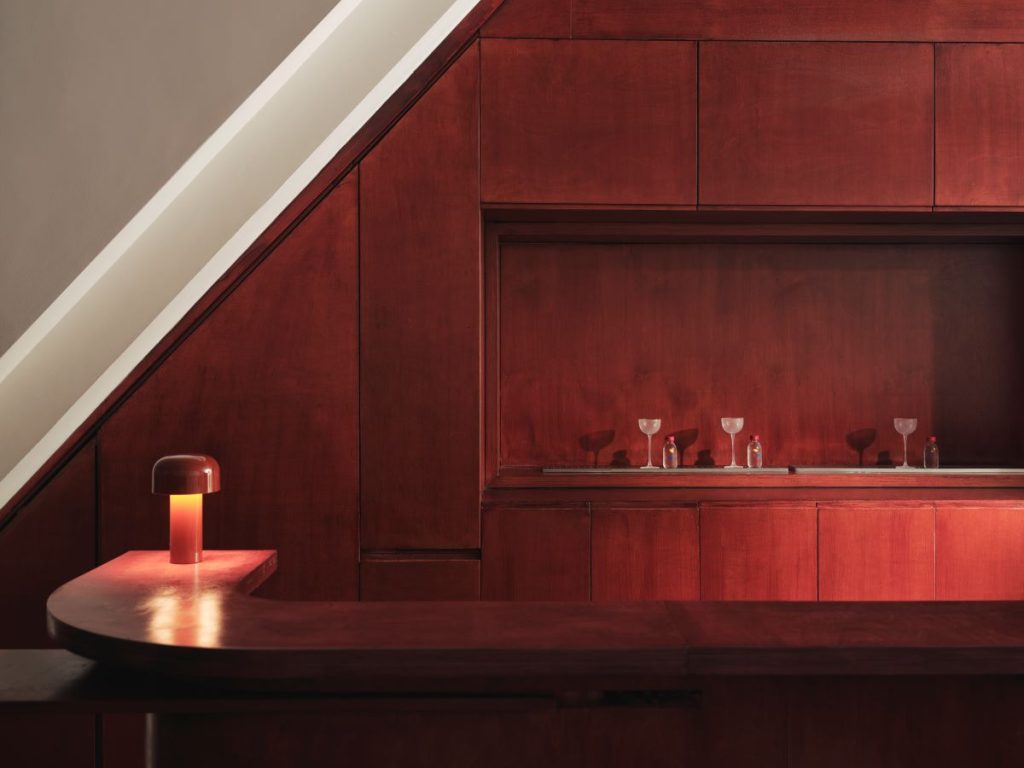
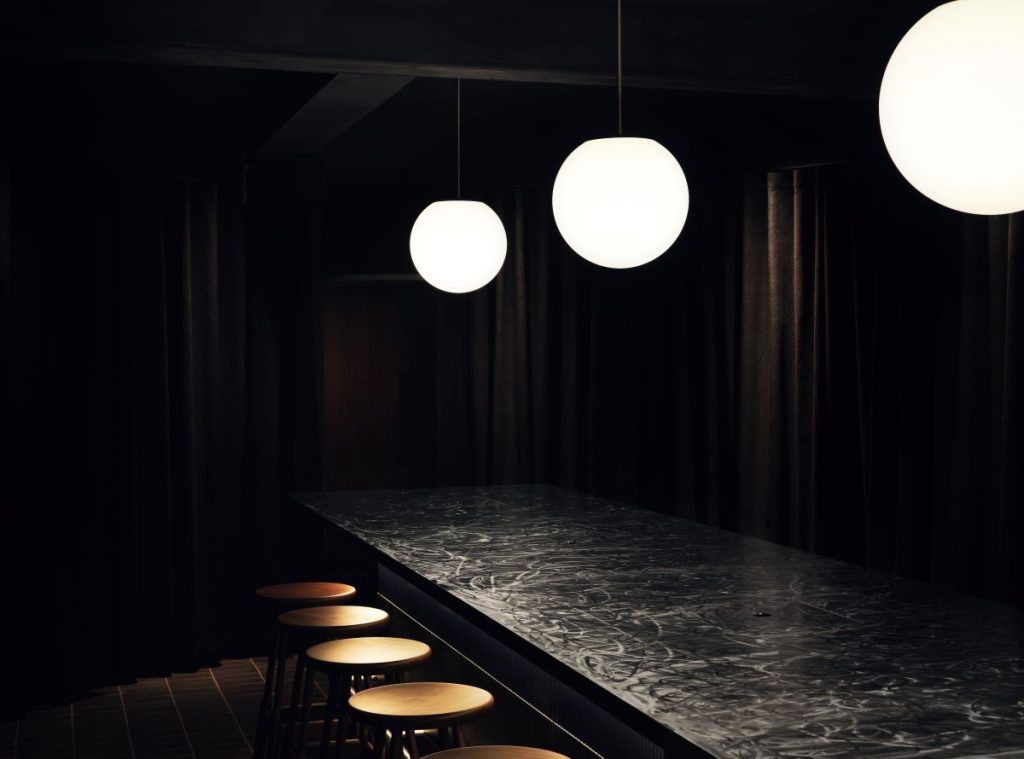
Moncrieff began taking internships whilst at high school to get a feel for architecture, before looking up to professionals that helped him shape his approach to work: “I’m always particularly grateful to my professor Diane Lewis from the Cooper Union who taught about space through the lens of a poetic imagination. She was an incredible architect.”
The switch towards being a professional architect and business owner was fueled by a consistent search for education and inspiration, resources that have been extremely important along the way. “I find interest in books, walks to look at buildings, looking at buildings, drawing buildings! Also just keeping a curious and open mind as you walk around the city.”
I guess AI is making some pretty big impressions on things. I don’t believe you will ever be able to replace the creative instinct though, because it’s about joy and passion and that’s not available to a machine – yet.
This, plus a daily practice in drawing (the hardest skill to master, according to Moncrieff) translates into an essential, direct and concrete approach to his craft, also implementing technology: “Technology is of course constantly evolving and changing. I guess AI is making some pretty big impressions on things. I don’t believe you will ever be able to replace the creative instinct though, because it’s about joy and passion and that’s not available to a machine – yet.”
Designing is a living and breathing thing. Practicing is fundamental, but nobody really knows how long it takes to master it to perfection, not even Moncrieffe: “I think it’s a lifelong effort really. I would say we ourselves are just getting started, and hopefully through some great projects we will be able to pass on our passion and dedication to the next generations. I’d like to teach someday too.”
Is it true then that practice makes perfect? “Well, I’ll let you know…”
Michele Giuman, glass master, The Glass Cathedral, Murano
Entering The Glass Cathedral on the island of Murano is quite the experience, and a deconsecrated church is today home to a glass furnace, as well as being an event-hosting venue. Here, glass master Michele Giuman has been learning, mastering and demonstrating the rare craft of glassmaking for the past 30 years.
“I still perfectly remember my first experience with glass,” he recalls. “It was my first fondita, the process through which glass crystalises. I was with my father, and he was concocting his signature combination of silica sand, potassium, potassium nitrate, limestone and soda, to put it in the oven.”
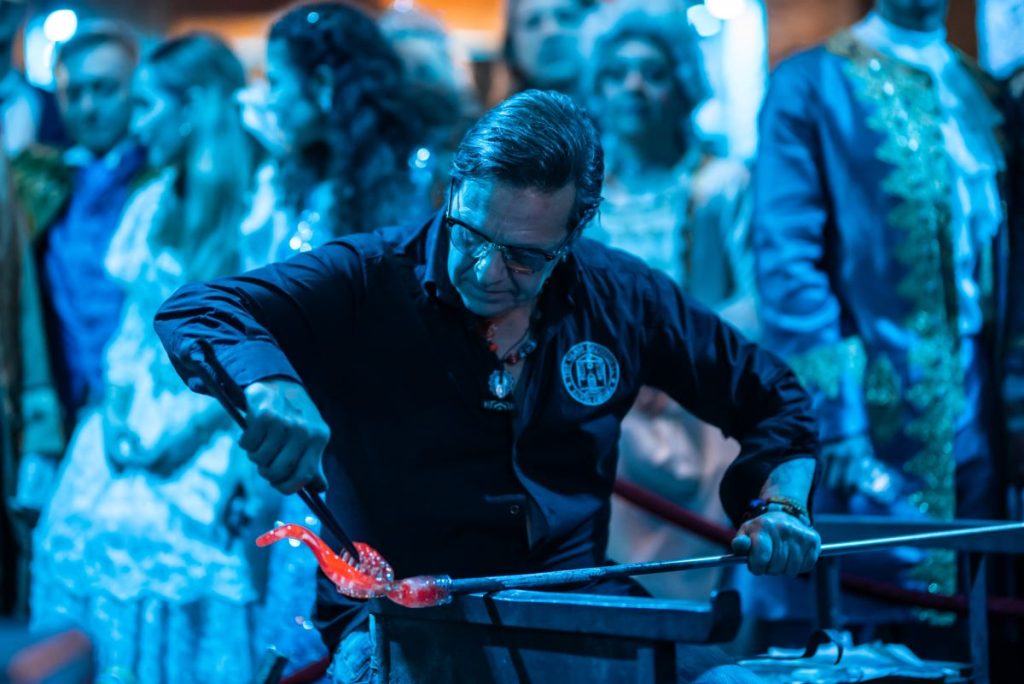
Glassmaking has been the pillar of Murano and Venice’s economy since the 10th-century, with its produce still to this day known the world over. It’s a unique craft, filled with tradition and unwritten rules: “I started because I’ve always been very passionate”, Giuman explains. “I was pretty much born in a furnace. It takes dedication to become a glass master: you begin as a serventino (helper) and then move up to levare (taking the glass outside of the oven). With time you can become a servente (the glass master’s right arm) and if you are good enough you rank up to be a master. Otherwise, you stay a servente for life.”
A solid mentorship and a natural artistic instinct can go a long way, according to Giuman’s experience, as he describes what new apprentices do when they begin: move the newly made glass objects into the tempering oven. “I learned from my father and a few masters like Fratelli Serena, Alessandro Barbaro, Mario dei Rossi. I can’t even count the amount of tries I had to undergo, before getting the gist of it, though everyone needs their own time. It allowed me to understand that we need to have a clear idea of what we want to achieve, much before starting the production process: a glass master visualises the object they want to create and the technique they need to create it.”
Perfection? It does not exist. What we can do is put everything we have in our job and try to get as close as possible to being perfect.
That’s because with different techinques come different tricks: the globally renowned soffiato (blowing) techinque is the one that grants less room for error, while the massiccio process makes it easier to adjust and re-work possible mistakes. It’s a variety of possibilities that The Glass Cathedral showcases daily: “We create new work every day, and every piece is unique. We often work on request, and we cooperate with artists coming from different branches (painting, ironwork, woodwork, sculpture).”
Technology has been a fundamental support for glass masters and their creativity. The ovens switched from being wood, coal or oil powered, to the modern gas or electricity-based ones. But some things can’t be changed by technology. “Tools such as muffole (mittens) or tempre (to make glass resistant) are the ones that improved the most,” explains Giuman. “The process never really changed, as it is not influenced by technology.”
A craft that witnessed centuries of evolution is sadly now facing extinction, though: “On one hand, it is an activity that needs constant practice, we learn every day. On the other, we struggle to see a new generation of glass makers,” laments Giuman who is one of the youngest at 55. He hopes one day he can pass his knowledge down to the younger generation. Is he still in pursuit of perfection? “That does not exist. What we can do is put everything we have in our job and try to get as close as possible to being perfect.”


